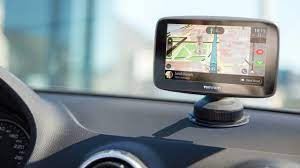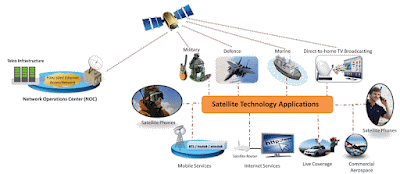Abstract:
In our rapidly evolving world, mobile communication systems have become an indispensable part of our everyday lives. With advancements in data rates and availability, mobile devices offer a wide range of applications that amplify productivity. Among these applications, the reminder feature, traditionally based on dates and times, takes center stage. However, there is an increasing demand for reminders based on specific locations. For instance, it is common to forget an item from a shopping list while being at a mall. To tackle this issue, we introduce "Place Reminder," an innovative Android app that delivers reminders based on precise locations. This article presents an overview of the application and delves into the underlying technology.
Introduction:
Modern
mobile phones present a multitude of reminder and alert systems that
predominantly rely on time and date. Nevertheless, there are situations where
location-based reminders prove more advantageous. For instance, during our
daily routines, we frequently visit places such as malls and often overlook
items we intended to purchase. We yearn for a way to be reminded of these items
when we reach the relevant location. Existing methods like post-it notes, email
reminders, to-do lists, and calendar alerts provide some assistance, but they
lack the contextual awareness that location-based reminders offer. In light of
this necessity, we propose "Place Reminder: Location-Based Reminder on
Mobile Phones," an innovative app empowering users to set reminders based
on specific locations. By harnessing the capabilities of this application, we
can efficiently employ our smartphones as personal assistants, ensuring the
accomplishment of tasks at the right place and time.
Real-World
Scenarios:
1. When
people depart for the office or school, they often tend to forget things.
2. One
may contemplate completing a task at home after returning from the office.
3. It is
possible for someone to desire remembering to purchase a birthday gift the next
time they visit a gift shop.
4.
Occasionally, individuals forget a written grocery list when heading to the
store from home.
5. People
frequently overlook visiting certain places while on vacation.
To address these scenarios, it is crucial to possess a reminder system or app that promptly notifies individuals about forgotten tasks as soon as they arrive at specific locations. The proposed app, "Place Reminder: Location-Based Reminder," takes inspiration from these real-world situations. It leverages the Global Positioning System (GPS) as a vital component. GPS, a space-based satellite navigation system, offers accurate location and time information regardless of weather conditions. To receive GPS data, an Android mobile phone equipped with a GPS receiver is required, and numerous options are available in the market.
GPS:
The
Global Positioning System (GPS) stands as a space-based satellite navigation
system, providing precise location and time information worldwide. It
encompasses three segments: space, control, and user segments. These segments
collaborate to establish a functional system that enables global
navigation-based services.
GPS employs a satellite constellation wherein each satellite transmits signals containing navigation messages. These messages encompass vital information used to determine satellite coordinates and synchronize satellite clocks with GPS time. Achieving three-dimensional positioning and timing capability necessitates measurements from a minimum of four satellites. The satellite constellation grants diverse possibilities for users situated anywhere on Earth. The Operational Control Segment (OCS) assumes responsibility for satellite tracking, orbit maintenance maneuvers, error correction implementation, satellite monitoring, and navigation data updates.
The GPS
architecture of Place Reminder, referred to as GPS Architecture, comprises
several segments essential for the system's functionality. Each segment plays a
pivotal role, and the absence of any segment renders the system inoperable. The
three fundamental segments encompass:
1. User:
Represents individuals utilizing the Place Reminder app installed on their
mobile devices to access its features.
2. Mobile
Terminal Device: A hardware-equipped device enabling the utilization of the
Place Reminder app, such as smartphones or tablets.
3. GPS
System: Encompasses satellites and receivers designed for positioning purposes.
Location-Based
Services (LBS):
Location-Based
Services (LBS) denote mobile services that employ user location information to
enhance the overall service. Location information consists of X-Y coordinates
generated by various Location Determination Technologies (LDT) like Cell-ID,
A-GPS, EOTD, etc. LBS services can be classified as imposed LBS services (push
services) and user-requested LBS services (pull services). The infrastructure
necessary to enable LBS services encompasses mobile devices, applications,
communication networks, positioning components, servers, and services.
Mobile
Devices:
Mobile
devices serve as the primary means of accessing LBS services, sending requests,
and receiving results. Examples of mobile devices include Personal Navigation
Devices (PNDs), Personal Digital Assistants (PDA), portable computers, and
cellular phones. These devices facilitate diverse LBS services, including
navigation, tracking, information retrieval, advertising, orientation, and
charging.
Over the
past few years, the satellite communications market has witnessed substantial
growth. The industry has broadened its offerings to encompass
telecommunications services via low Earth orbit (LEO) satellite constellations,
bolstering its capabilities in high-growth domains such as direct-to-home (DTH)
television. Although certain sectors of the satellite communications industry
have undergone mergers among significant providers and operators, the advent of
new broadband services and bundled offerings promises to sustain or even
increase growth in the upcoming years.
Android
App Development:
Android,
an operating system for mobile devices, has gained substantial popularity.
Developed by the Open Handset Alliance and Google, Android's application
framework empowers developers to create sophisticated and innovative apps
utilizing reusable components. The development environment for Android apps
primarily relies on Eclipse, an open-source integrated development environment
(IDE). Eclipse offers an extensible platform and application framework for
software development, supporting multiple programming languages including Java,
C, C++, and more.
Database:
SQLite:
SQLite,
an open-source database engine, is embedded into the Android platform. It
provides support for standard relational database features such as SQL syntax,
transactions, and prepared statements. SQLite boasts a small memory footprint,
making it well-suited for mobile devices. Supported data types encompass TEXT,
INTEGER, and REAL, while other types necessitate conversion to one of these
formats before being saved in the database. Android automatically handles
SQLite databases, eliminating the need for manual setup or administration.
Conclusion:
The
extensive network coverage and prevalence of mobile phones render them an ideal
platform for personal ubiquitous computing. Place Reminder, as evidenced during
its two-week deployment, has verified the usefulness of location-based
reminders, even with coarse location-sensing capabilities. Location serves as a
widely employed cue for contextual information that can be arduous to detect
using alternative methods. The convenience and omnipresence of location sensing
offered by mobile phones overshadow the present limitations, positioning them
as a promising platform for personal ubiquitous computing. The study has also
unveiled unforeseen applications of location-aware reminders, such as creating
motivational reminders to undertake activities with varying priorities over
time. Similar to utilizing post-it notes in visible locations, Place Reminder
empowers users to set motivational reminders at various shops.
Hashtags/Keywords/Labels:
Place Reminder, Location-based
Reminder, Android App, GPS, Reminder System, Mobile Communication, Satellite
Communications
References/Resources:
1. Tong Chang: "Analysis of
critical success factors of mobile location-based services", Helsinki
University of Technology, Master thesis, Helsinki 2009.
2. Open Handset Alliance.
3. "In what could be a key
move in its nascent wireless strategy, Google (GOOG) has quietly acquired
startup Android, Inc."
4. https://pdf.cyberpresse.ca/lapresse/dufour/rimm.jankowski.august3.pdf
(August 2010)
For more such Seminar articles click index
– Computer Science Seminar Articles list-2023.
[All images are taken from Google
Search or respective reference sites.]






No comments:
Post a Comment